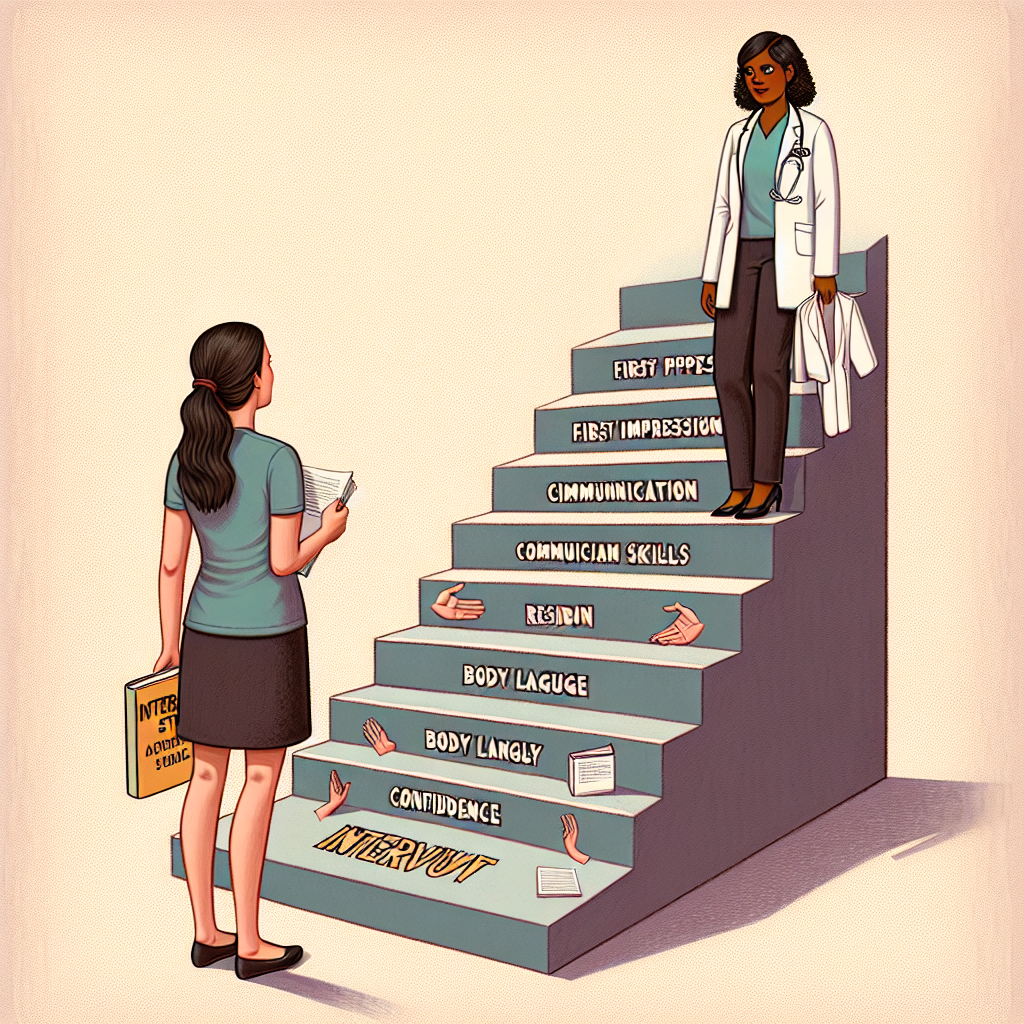Preparing for a residency interview can be both exciting and daunting. As a budding physician eager to make your mark in the medical field, standing out in a sea of qualified candidates is crucial. This article will explore effective strategies to elevate your residency interview performance, helping you transition from a good candidate to a great one.
Understanding the Residency Interview Process
Before diving into specific strategies, it’s essential to understand the residency interview’s structure and what programs look for in candidates. Residency interviews typically consist of a combination of one-on-one interviews, panel interviews, and sometimes even group activities. Programs seek candidates who not only excel academically but also exhibit strong interpersonal skills, professionalism, and a passion for medicine.
The Importance of Preparation
The foundation for a successful residency interview lies in thorough preparation. Take the time to research each program you are applying to. Familiarize yourself with their mission statements, core values, and areas of expertise. This knowledge will help you tailor your responses and demonstrate genuine interest.
Tips for Effective Research:
- Review the Program Website: Look for key initiatives, faculty published works, and ongoing research.
- Connect with Current Residents: Reach out via social media or professional networks to gain insights into the program culture and expectations.
- Attend Information Sessions: Many programs offer virtual or in-person Q&A sessions which can provide additional context.
Crafting Your Personal Narrative
A compelling personal narrative is essential for making a meaningful connection with interviewers. This story should encapsulate your journey into medicine, key experiences, and what drives you.
Structure of a Strong Personal Narrative:
- Introduction: A brief overview of who you are and your motivation for pursuing a career in medicine.
- Key Experiences: Share impactful experiences that shaped your medical career, such as volunteer work, research projects, or clinical rotations.
- Future Goals: Conclude with your aspirations as a resident and long-term goals in medicine, emphasizing how the program aligns with these ambitions.
Practice Makes Perfect
Once your narrative is crafted, practice is critical. Conduct mock interviews with friends or mentors to refine your delivery. Use recorded sessions to review your body language and speaking pace. Constructive feedback will help you hone your conversational style and improve your confidence.
Mastering Common Interview Questions
While each residency interview varies, certain questions often surface. Familiarizing yourself with common inquiries can prepare you to present yourself authentically and confidently.
Common Residency Interview Questions:
- Why X Field of Medicine?
- How do you handle stress?
- Describe a time when you faced a challenging situation.
- What are your strengths and weaknesses?
Crafting Tailored Responses
For each question, develop a structured response that includes specific examples. Use the STAR method (Situation, Task, Action, Result) to keep your answers focused and impactful. This approach not only showcases your problem-solving skills but also demonstrates your ability to communicate effectively.
Dress to Impress
First impressions matter, and how you present yourself during the interview can influence perceptions. Aim for professional attire that aligns with the program’s culture, generally leaning towards business formal. Ensure you are well-groomed and exude confidence through your body language.
Building Rapport with Interviewers
Building rapport during the interview can set you apart from other candidates. Be genuinely interested in your interviewers as individuals; ask them about their experiences in the program or their medical journeys. This not only showcases your interpersonal skills but also reflects your commitment to teamwork and collaboration in medicine.
The Art of Active Listening
Active listening is crucial during the interview. Show that you value the interviewers’ insights by nodding, maintaining eye contact, and asking follow-up questions. This engagement demonstrates respect and genuine interest, leaving a positive impression.
Follow-Up After the Interview
Your engagement shouldn’t end once the interview is over. Sending a thoughtful thank-you email expressing gratitude for the interview opportunity and restating your enthusiasm for the program can keep you fresh in their minds. It’s a simple gesture that can have a significant impact.
Components of an Effective Thank-You Note:
- Express Appreciation: Thank the interviewers for their time.
- Mention Specifics: Reference a topic discussed during the interview to personalize your message.
- Reiterate Interest: Firmly restate your enthusiasm for the program and how you fit.
Conclusion
Transitioning from a good candidate to a great one in your residency interview is all about preparation, practice, and authenticity. By understanding the interview process, crafting a compelling personal narrative, mastering common questions, and following up effectively, you can significantly enhance your chances of securing a coveted residency position. Embrace the journey, and remember that every interview is an opportunity to grow. Good luck!


